
‘The dinosaurs are dying out’: why the #MeToo meteorite needs to crash down on Japan like in South Korea
The global movement has spread like wildfire in neighbouring South Korea, but Japanese women have not been as quick to make such public allegations against male abusers
With his head bowed and tears streaming down his face, Tatsuya Yamaguchi earlier this month revealed he had been hospitalised for drinking-related problems and would leave the hugely popular boy band Tokio after being accused of forcibly kissing a female fan who he invited to his flat.
An apology and compensation were enough for the girl to withdraw her complaint and for prosecutors to drop the case, but the divorce from the four-strong pop group became final on Sunday when the 46-year-old quit the band and their agency, Johnny & Associates.
Japan’s #MeToo movement has been far more low key than in other parts of the world. Nevertheless women here believe younger generations of Japanese men are now far more likely to regard them as equals and partners, rather than “merely female”.
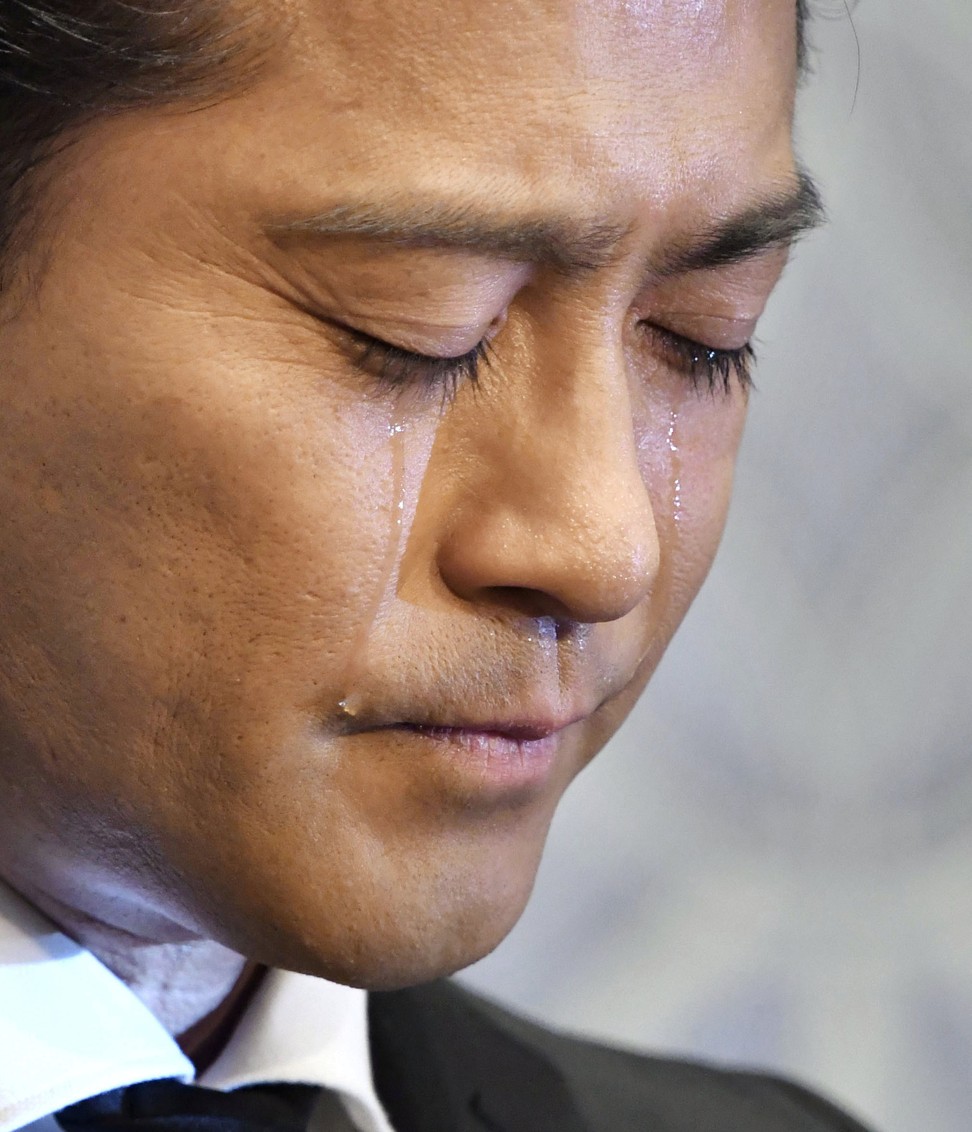
“The dinosaurs are dying out,” said Noriko Hama, a professor of economics at Kyoto’s Doshisha University. But she added: “We just need a meteorite or two to get rid of those who are too stuck in their ways to change.”
Japan’s #MeToo campaign has been almost glacial when compared with neighbouring South Korea, where a string of explosive allegations have been levelled against dozens of men in politics, music, literature and academia over the past six months.
The movement spread rapidly in South Korea after prosecutor Se Ji-hyeon accused a senior Ministry of Justice official of groping her at a funeral while he was drunk. #MeToo then engulfed Ko Un, a poet who had been tipped for the Nobel Prize for Literature, and Kim Ki-duk, an award-winning film director.
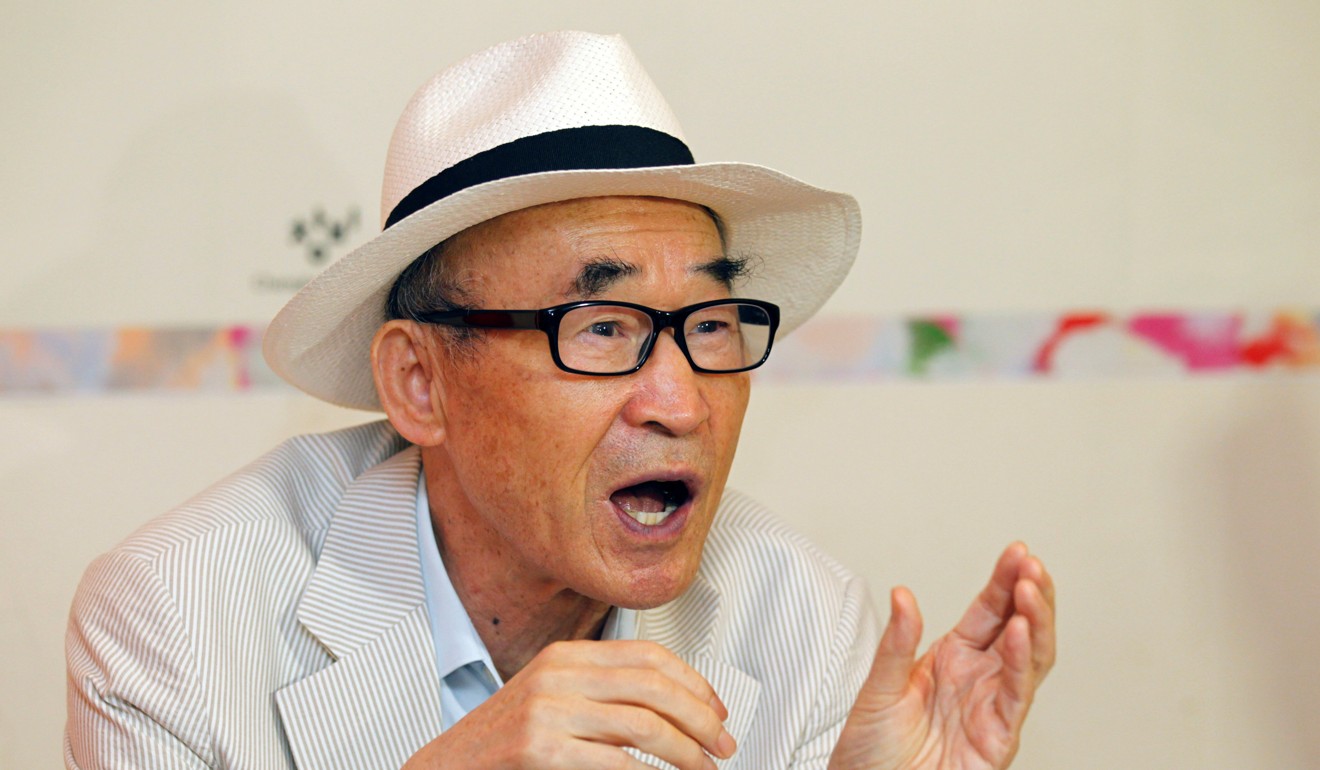
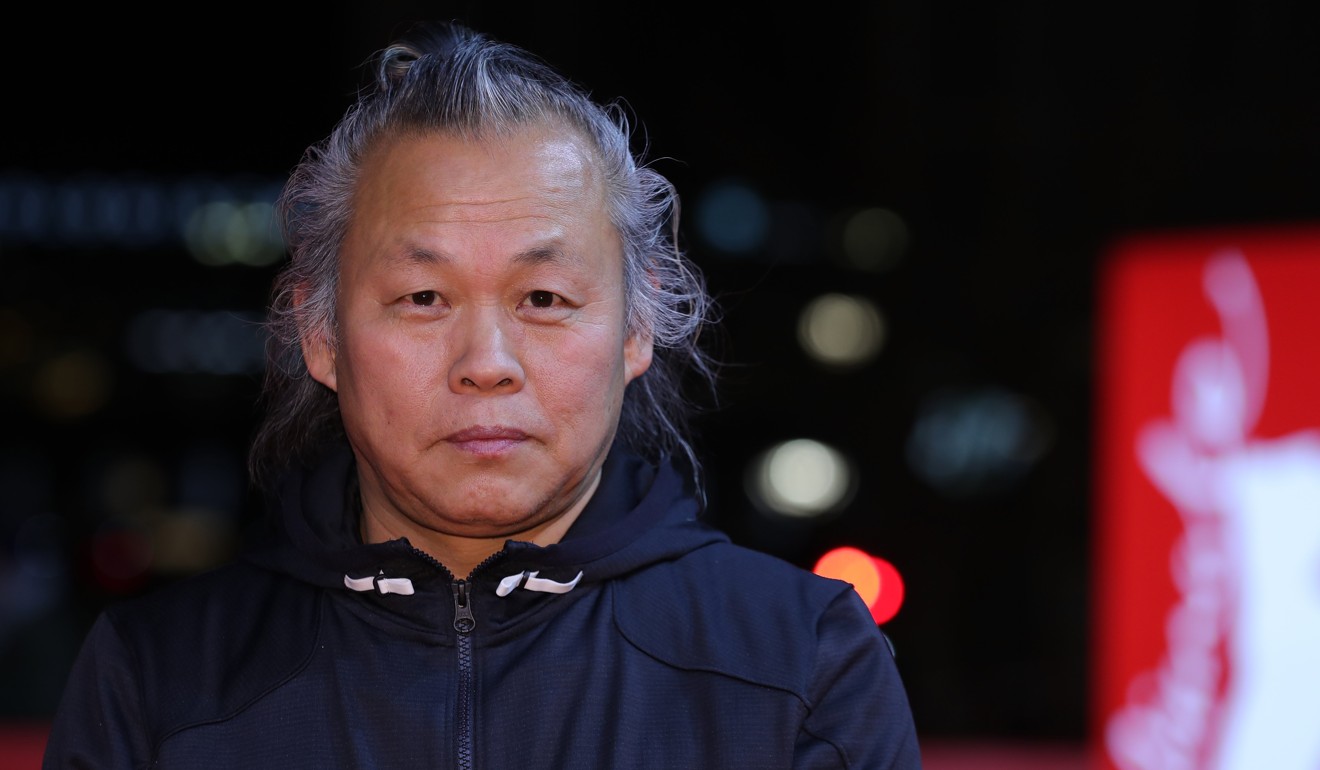
Ahn Hee-jung, the former governor of South Chungcheong Province, tipped as a future presidential candidate, surrendered to prosecutors for questioning over allegations of rape which were brought by two members of his staff, and was indicted earlier this month. And well-known actor Jo Min-ki hanged himself in March after being accused of rape or sexual assault by eight women.
Perhaps emboldened by events in Korea, which made headlines across the East Sea (or Sea of Japan), more Japanese women have taken the previously unthinkable step of making public accusations against their male abusers.
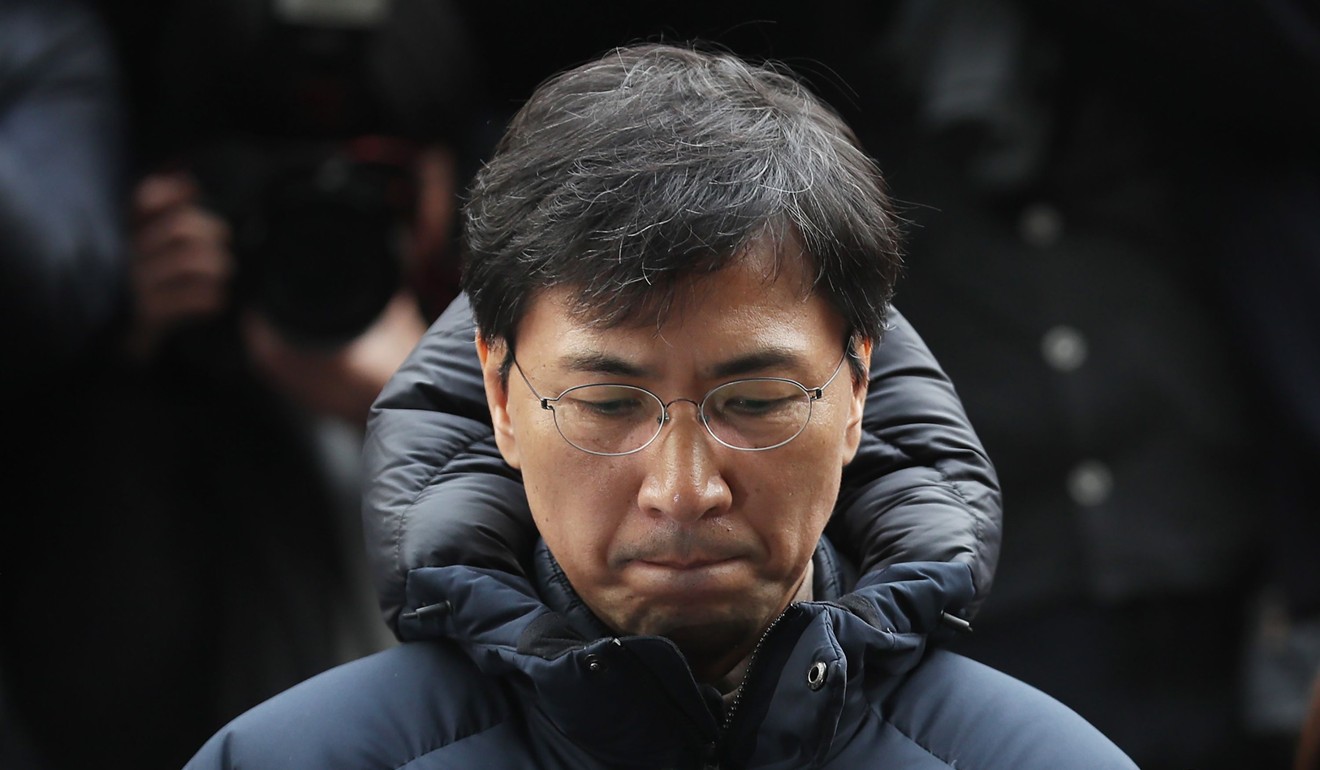
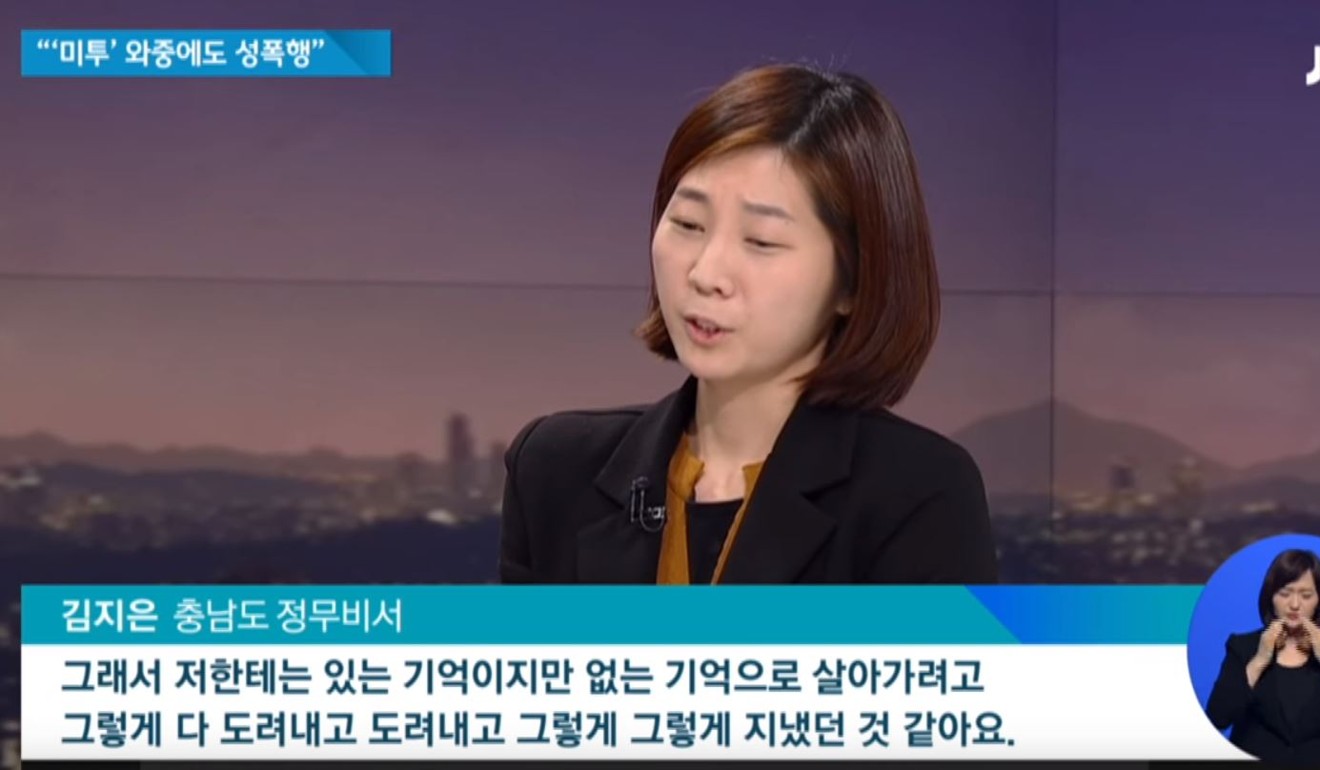
A model who posed nude for the notorious photographer Nobuyoshi Araki has claimed he exploited and bullied her for 16 years, refusing to give her a professional contract, failing to tell her when photos were being published and even refusing to pay her on occasions.
Junichi Fukuda, a vice-minister at the Ministry of Finance, resigned to “clear his name” after a female journalist released a recording of him asking to touch her breasts. He has continued to protest his innocence.
Meanwhile, a news reporter named Shiroi Ito had to bring a civil lawsuit against a famous male journalist, who she says drugged and raped her, after police dropped their investigation against him.
“I think that Japanese women are struggling and striving to get out of a mindset that makes them too polite to say anything when this sort of assault happens,” said Hama.
“Koreans are traditionally energetic when it comes to protesting what they feel to be an injustice and perhaps that is just a cultural difference.
“I don’t see that sort of almost frenzied anger in Japan, but there has undeniably been a greater understanding of the issue here.”
Hama believes modern young Japanese men are “much broader in their outlooks and do not see differences between the sexes”.
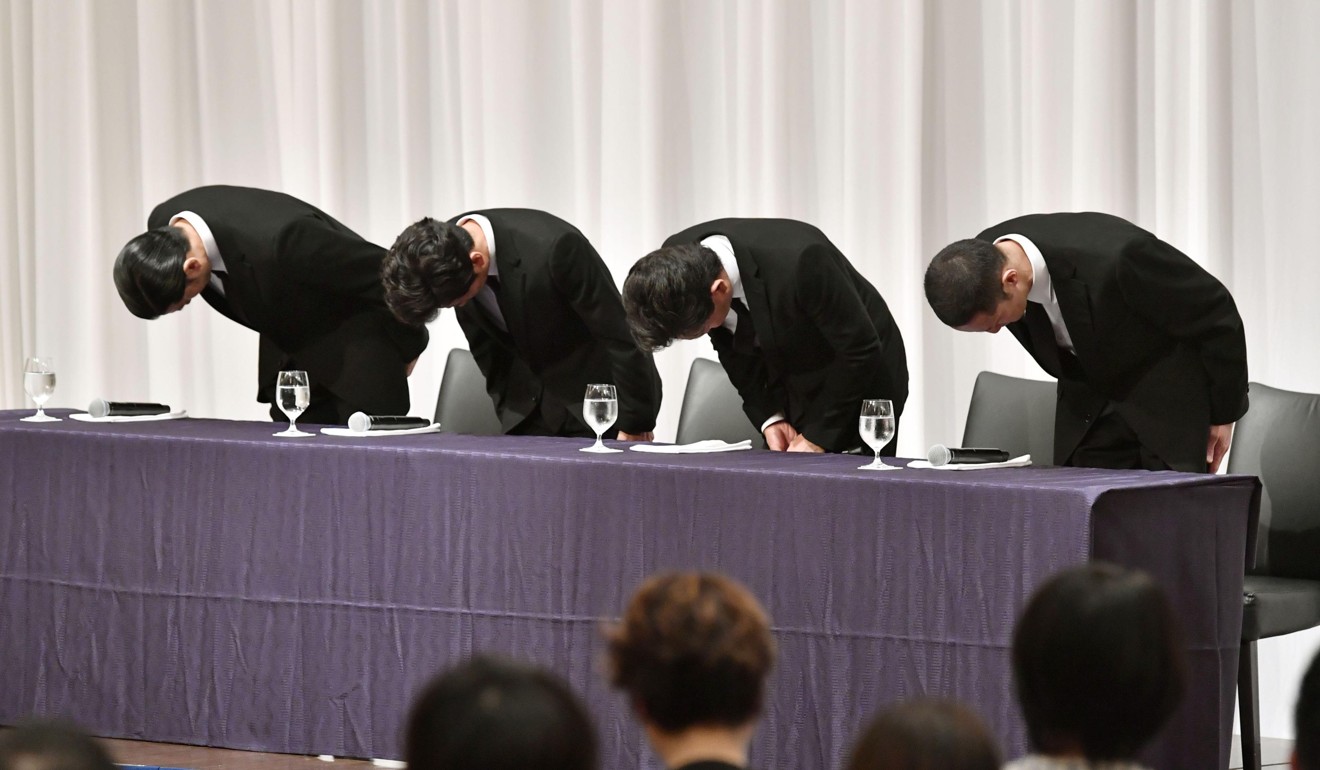
“They are happy to work alongside women, they generally see no differences between themselves and women and this is, I think, a definite change for the better.”
The problem, she admits, lies with the older generation of Japanese men who still largely expect females to “know their place”.
“Yes, there are some men who are simply incurable,” she said. “Nothing will ever change them and the only solution that I can see is for them to be driven into a corner until they themselves know how it feels to be on the receiving end of discrimination and inequality.
“There are some who will never be re-educated and those are the dinosaurs for whom the meteorite is the only answer.”

